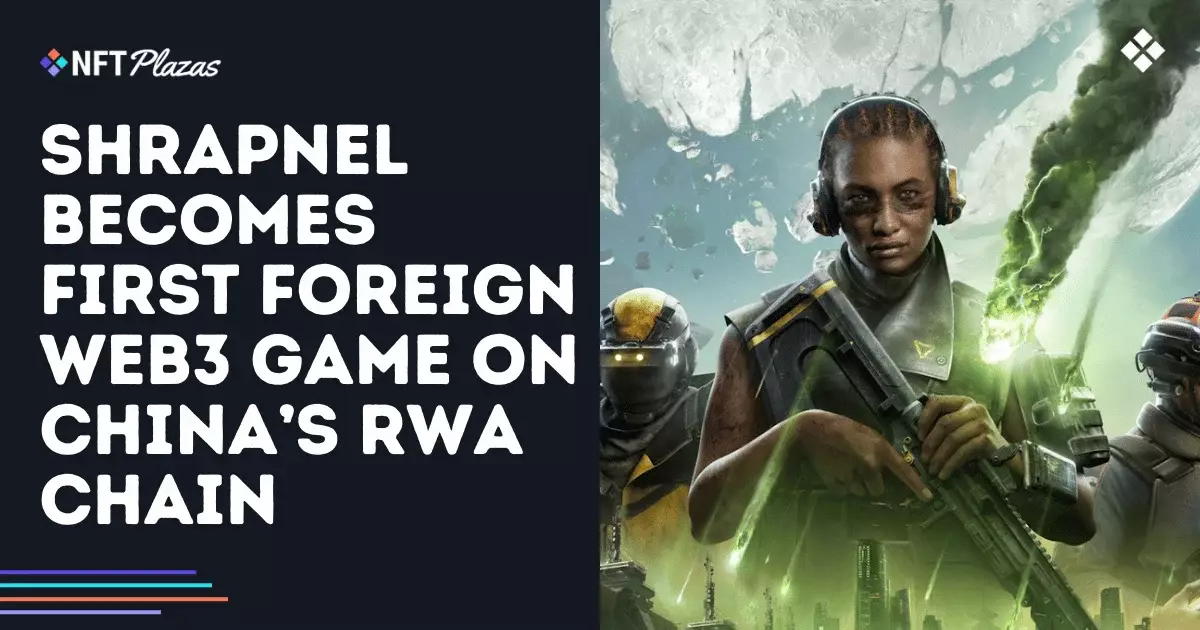In a move that sends ripples across the gaming industry, the US-developed web3 video game *Shrapnel* has secured government approval to operate on China’s RWA Copyright Chain. This designation is not merely a bureaucratic checkbox; it symbolizes a seismic shift in the country’s typically insular regulatory landscape. For the first time, a foreign blockchain-based game is gaining legitimacy within China’s tightly controlled digital ecosystem, marking a watershed moment for both developers and gamers eager for innovation in the world’s second-largest gaming market.
Access to a $40 Billion Market
With the gaming market in China valued at over $40 billion, this approval provides Shrapnel with an unparalleled opportunity. The pathway to success is paved with new partnerships and localized measures tailored to meet Chinese regulations. By embracing local norms and systems of verification, Shrapnel is setting a precedent that other foreign companies may look to replicate. This isn’t just a win for the developers; it’s a revolutionary change that challenges the narrative that foreign products cannot penetrate the challenging Chinese marketplace.
Localized Strategy Matters
A noteworthy aspect of this launch is the substantial alteration to the game itself before it makes its Chinese debut. Working in coordination with Lingjing Game Labs—affiliated with China’s official mouthpiece, People’s Daily—Shrapnel will implement a dedicated local launcher, thereby ensuring compliance with the country’s digital asset management laws. This kind of thorough localization could serve as a blueprint for other foreign firms. While this might seem like a compromise at first glance, it’s a pragmatic approach to harmonizing global gaming with localized requirements, reflecting a mature understanding of the complexities involved in cross-border commerce.
Digital Ownership Beyond Borders
Perhaps one of the most striking implications of this development is the recognition of in-game assets as legitimate digital property within China’s jurisdiction. Improvements in how these assets can be traded, bought, and sold are critical not only for *Shrapnel* but also for future international gaming endeavors looking to establish themselves in China. These regulations create a formal marketplace that, while still under strict oversight, indicates China’s willingness to acknowledge the value of intellectual property rights in digital landscapes.
A Template for Future Collaborations
However, let’s temper our enthusiasm with caution. While *Shrapnel’s* approval is undoubtedly groundbreaking, it doesn’t signify a broader liberalization of China’s policy towards foreign gaming or blockchain technologies. Yet, it does illustrate a potential pathway for compliant, cross-border collaboration in the expansive digital economy. Rather than assuming that this will open the floodgates for other companies, consider this: *Shrapnel* may well serve as a unique template for how international firms can navigate through the labyrinth of Chinese regulations. The key is not to challenge the system but to work within it—providing a model that could redefine the foreign digital product landscape in China.
This nuanced journey exemplifies a growing interest in leveraging blockchain technology to support national priorities like IP protection and digital asset verification. As organizations like *Shrapnel* successfully engage with Chinese authorities, the landscape could evolve—albeit cautiously—toward a more interconnected digital marketplace.


Leave a Reply